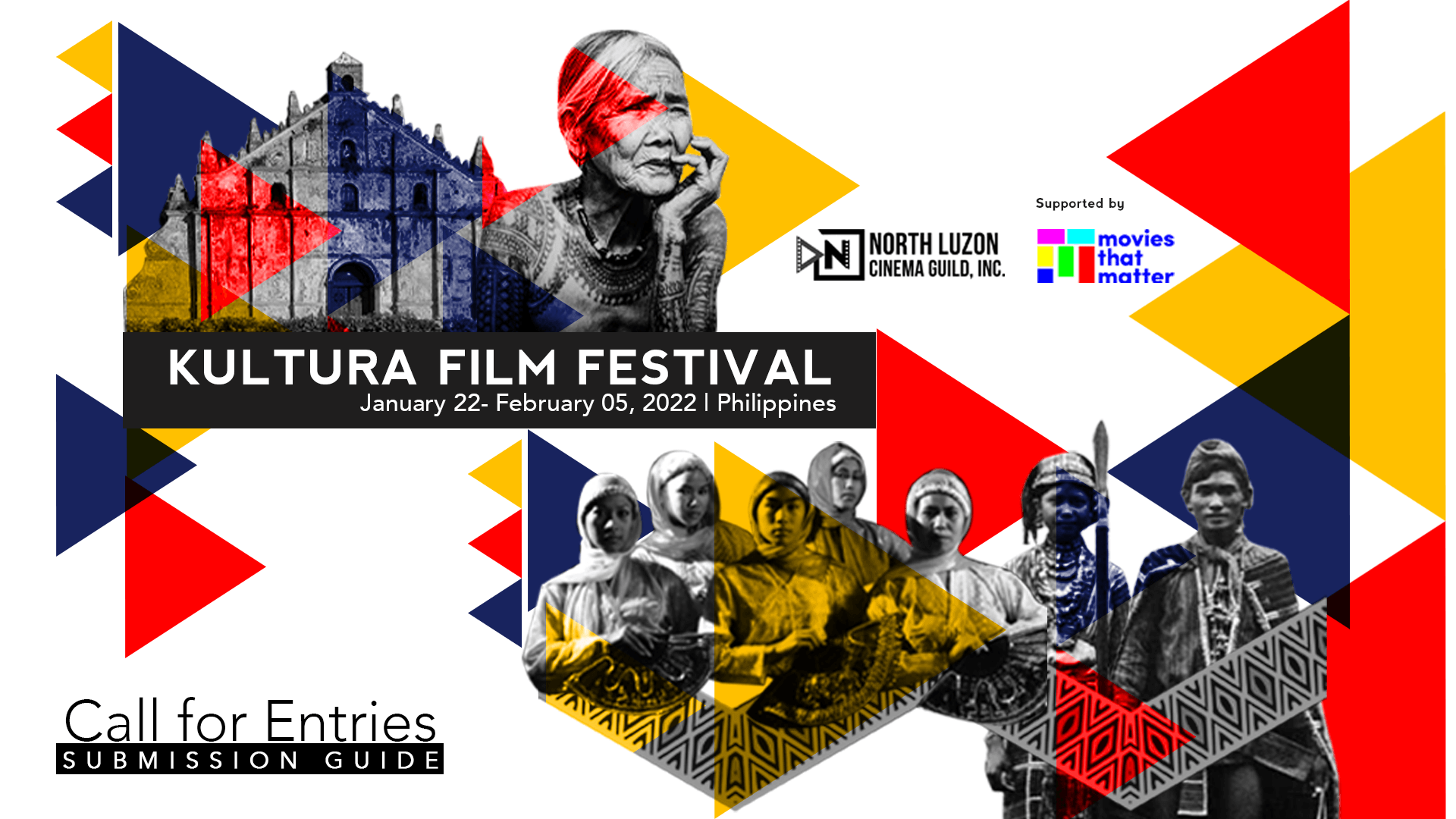SUMMARY
This is AI generated summarization, which may have errors. For context, always refer to the full article.

TUGUEGARAO CITY, Philippines – The North Luzon Cinema Guild, Inc. wrapped up its very first Kultura Film Festival, a hybrid film exhibition that showcased stories in the Philippines and Southeast Asia centered on culture and human rights.
The film exhibition ran from February 5 to 20, 2022 through limited physical screenings in Cavite and Tuguegarao, and via live streaming on the Kultura Film Festival website and Facebook page.
According to Jerome Dulin, managing director of the North Luzon Cinema Guild, Inc. and the festival’s director, the event was originally their organization’s output for a workshop under Movies that Matter and Active Vista.
“Naniwala kasi sila na mayroon siyang (Kultura Film Festival) impact sa community, particularly pagce-celebrate ng kultura sa Pilipinas [sa pamamagitan ng pelikula],” Dulin told Rappler in an interview.
(They believed the film festival would have an impact on the community, particularly in celebrating Filipino culture [through filmmaking].)
Dulin shared that Movies that Matter also supported the film festival through funding.
Motivation and inspiration of the film festival
What inspired the organization to put up a cultural and human rights film festival amid the pandemic? Dulin said it was because they had been previously red-tagged.
“Nared-tag na kasi kami dahil sa mga ganiyang aktibidad, ‘yung magraraise ng voice using films here in Cagayan, using social media here in Cagayan,” Dulin shared.
(We had been red-tagged before because of these kinds of activities, like raising our voices through films here in Cagayan, using social media here in Cagayan.)
So, they decided to further popularize the human rights issues in cultural communities through the festival, providing a platform for discussions that most people there considered taboo.
“Kasi kadalasan may mga kwento na hindi natin alam kase hindi natin napapanood. We are trying to give a platform for filmmakers [to show] also unique identity or unique perspectives sa kanilang komunidad na kadalasan ay hindi naipapakita sa isang mainstream platform,” he added.
(There are often many stories we’re not aware of because we don’t see them in the media. We are trying to give a platform for filmmakers to show the unique identities and perspectives of their community, which often don’t get a mainstream platform.)
He highlighted that this film festival would be an opportunity for people to realize that human rights violations exist in different forms.
“Sana makita nila ‘yun sa mga kwento at sana gumawa sila ng aksyon para sa kanilang kababayan,” he said.
(We hope they see this in these stories, and that they are moved to act on these issues for their countrymen.)
Line-up
The main themes of the short films and full-length films were showcased in the Kultura Film Festival centered on women, differing perspectives, untold tales, LGBTQ+ representation, war and power, and indigenous treasures of the communities.
Film titles on women representation were: Paano Bihisan ang Isang Ina? by Tim Rone Villanueva; The Story of Kam Agong by Agnes Padan, Lawrence Jayaraj and Wong Chin Hor; and When the Ocean Bleeds by Kenneth Dela Cruz.
Films featuring differing perspectives included: Diva, Divine? by Francisco Tavas; Klinikku Hutan (My Forest, My Clinic) produced by Malaysian filmmakers; and Maglabay Ra In Sakit (This Pain Shall Pass) by Mijan Jumalon.
Films telling untold tales included: Wild Boar by Kevin Pison Pasamonte; Out by Marie Claire Amora; Mark of Reckoning by Aireen Remoto; and May Papa Raw Ako (They said, I have a Father) by Heinrich Domingo.
The festival’s sole LGBTQ+ piece was Budjang (The Little Lady Under the Mangrove Tree) by Rhadem Musawah.
Films on war and power narratives included: A House in Pieces by Jean Claire Dy and Manuel Domes; award-winning documentary film Walang Rape sa Bontok (Bontoc, Rapeless) by Carla Pulido Ocampo and Mark Lester Valle; and Petani Bukan Pemalas (Farmers are not Lazy) by Nurfitri Amir.
Lastly, the closing films were Bullet-Laced Dreams by Kristoffer “Tops” Brugada and Cha Escala and Maria Leonor by Seymour Sanchez.
Aside from the film showcase, talkbacks, discussions on human rights, and film education sessions were also held.
Their future plans
Although the film festival has already ended, Dulin said that they will tour these films in different schools not only in North Luzon, but also in other areas around the Philippines.
“In the future, we will try to expand our film festival na to talk about the human rights situation [in different communities], and eventually you know it will be a platform not only for filmmakers but also educators, human rights defenders, activists,” Dulin shared.
(In the future we will try to expand our film festival to talk about the human rights situation [in different communities], and eventually, you know it will be a platform not only for filmmakers but also educators, human rights defenders, activists.)
The North Luzon Cinema Guild, Inc. is a hub for aspiring filmmakers and practicing filmmakers in Northern Luzon and is located in Tuguegarao City, Cagayan. – Rappler.com
Edmar Delos Santos is a Rappler intern under Life & Style and Entertainment section.
Add a comment
How does this make you feel?
There are no comments yet. Add your comment to start the conversation.